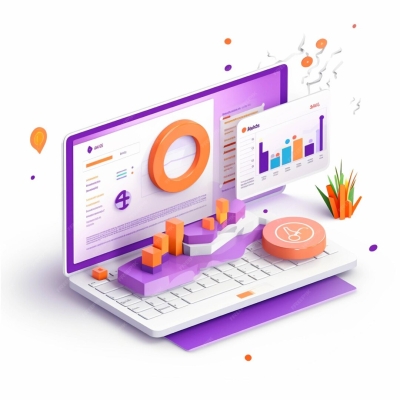


Data Management Systems
In today's business landscape, the sheer volume of information exchanged across multiple departments on a daily basis necessitates a robust solution. Thus, it has become imperative for companies to develop ERP or CRM systems that has the versatility and functionality required to handle diverse types of data and processes. Moreover, there is a growing need to seamlessly integrate these systems with external gateways such as websites or mobile applications, allowing for universal access from any device, anywhere, and at any time.
System Analysis:
Before embarking on the development of ERP and CRM systems, thorough system analysis is conducted by experienced architects. This analysis involves identifying the types of data required for the system and understanding the flow of data within the organization. System architects meticulously examine various data types such as text, images, or videos, and determine how they interact and flow through the system. This crucial step ensures that the resulting system accurately reflects the organization's needs and processes.
Database:
Based on the insights gained from the system analysis, the next step is to build a robust database. This involves designing a data scheme that allows for efficient indexing and retrieval of data. The database schema is carefully crafted to accommodate the diverse data types identified during the system analysis. Proper indexing ensures that data can be retrieved quickly and accurately when needed, laying the foundation for a reliable ERP and CRM system.
Development:
With the database structure in place, the development phase commences. Backend developers work on building the core functionalities of the system, including data processing, storage, and retrieval. Simultaneously, frontend developers focus on creating a user-friendly interface that facilitates seamless interaction with the system. The user interface is designed to effectively communicate with the database, ensuring smooth data flow and proper display of content to users.
Integration and Connectivity:
In today's interconnected world, seamless integration with other solutions is essential for ERP and CRM systems. Our developed solutions are designed to integrate seamlessly with various platforms, including websites, e-commerce platforms, and mobile applications. This interoperability allows for the exchange of data and information between different systems, streamlining business processes and enhancing productivity.
Accessibility:
Accessibility is a key consideration in the development of ERP and CRM systems. Our solutions are designed to be accessible from any device connected to the internet, regardless of the operating system or screen dimensions. Whether accessing the system from a desktop computer, laptop, tablet, or smartphone, users can enjoy the same level of functionality and performance. This ensures that organizations can efficiently manage their operations from anywhere, at any time, maximizing flexibility and productivity.
Data Management Systems
Real estate developers and brokers can greatly benefit from implementing a real estate Customer Relationship Management (CRM) system. These tools...
Academies and training centers can greatly benefit from implementing a CRM (Customer Relationship Management) system tailored specifically for...
Dental academies require a specialized management system and CRM to effectively handle the unique intricacies of their field, such as organizing...
Small and Medium businesses require a robust Data Management System to efficiently organize their warehouses, track product stocks, manage both...
Risk free
Don't risk your money and save your money by dealing with us, one of the digital solutions pioneers in the world.
 English
English
 العربية
العربية



